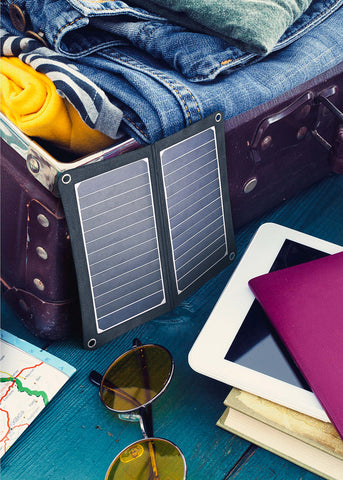Find the best solar panel for you!
What if you were helplessly trapped in the dark? It sounds like something out of a horror movie. However, if you choose the wrong portable solar panel, this could become a reality. Portable solar panels are a technology that has been around for a long time, and there are many to choose from. Fortunately, you can follow these simple tips to find the best solar panel for your needs. Read on for all the tips and tricks What is a Portable Solar Panel? We have the perfect guide to help you discover the best portable battery pack for your needs. But first, we have to define exactly what these solar panels are. Portable solar panels are basically the love child of energy storage (outdoor power banks) and those solar-powered flashlights you used to use in camping. It absorbs energy from the sun, which can then be used to charge various devices such as mobile phones, ipads,etc.
For better or worse, there are many kinds of options. Use our guide below to make the best choice.
1.Know the type
Not all solar panels are created equal. In fact, there are three possible panel types for you to choose from. The first is mono-crystalline silicon panels. They are known for being hard and heavy, but they are also durable and relatively efficient, with conversion efficiencies around 20-23%. Poly-crystalline silicon panels and mono-crystalline silicon. Similar, but they are blue in color and slightly less efficient, with conversion efficiencies around 18-20%. The last option is thin film solar panels, CIGS panels. This is an acronym that stands for copper, indium, gallium and selenide. These panels are flexible and thin, but they are not as durable as other options, and the conversion efficiency is around 14%, but now there is basically no such material, and they declared bankruptcy some time ago. Ultimately, the panel you choose should be based on where you will be using it and how long you will need it.
- Size issues
Some people say that size doesn't matter. Trust us: they never have to drag solar panels around! If you're going hiking or camping, you have to have plenty of room. If you're going hiking or camping with a solar panel, you'll want it to be smaller, or at least foldable. This makes it easy to carry. If you're using these panels for other outdoor events (like a backyard party or music festival), larger panels may be more acceptable. And as a bonus, the larger surface area of this panel will usually give you more power.
- Be flexible
For those planning to carry solar panels with them, there is an important choice to make: foldable or not. At first glance, a foldable board seems like a perfect fit. It's light, easy to carry, and very convenient. However, such panels are less durable and may need to be replaced frequently. Another option is to get a panel that is the right size and shape for your needs. This way you can pack around it to create a special space for the panel. Such panels will be more durable, but you'll need to address the weight.
- Weight
For solar panels, size and weight are usually proportional. Choosing the right panel often involves finding a balance between weight and utility. For example, heavier panels can be hell on your back, but they are generally durable and give users more options. If you're not going to drag the panel very far, or if you're driving the way it moves, weight isn't an issue. Otherwise, you want to make sure that the added weight doesn't weigh you down during various outdoor activities.

- Weather
Does your area experience frequent rains and storms? The answer may determine which portable panel you end up buying. If it rains a lot, then you'll want a more efficient panel. This is because there may be very little sunlight, and you need a panel that makes the most of it!
- Double check the equipment
Portable solar panels aren't quite the "Swiss Army Knife" of electronics. Most of the time, they're mostly good for charging a handful of devices. Before buying, you need to determine which devices you want the battery board to charge. Next, you have to make sure the panels are able to charge them. For example, if you are a camper and want to buy a camping radio, please check if your panel is rechargeable. For example, the wattage of panels varies widely. If you're charging juice-heavy items, you'll probably need something with at least 15 watts of power. Don't forget to see if your device needs additional accessories before charging. For example, most laptops will require a DC/AC drive to receive charging from the panel.


Comments
Post a Comment